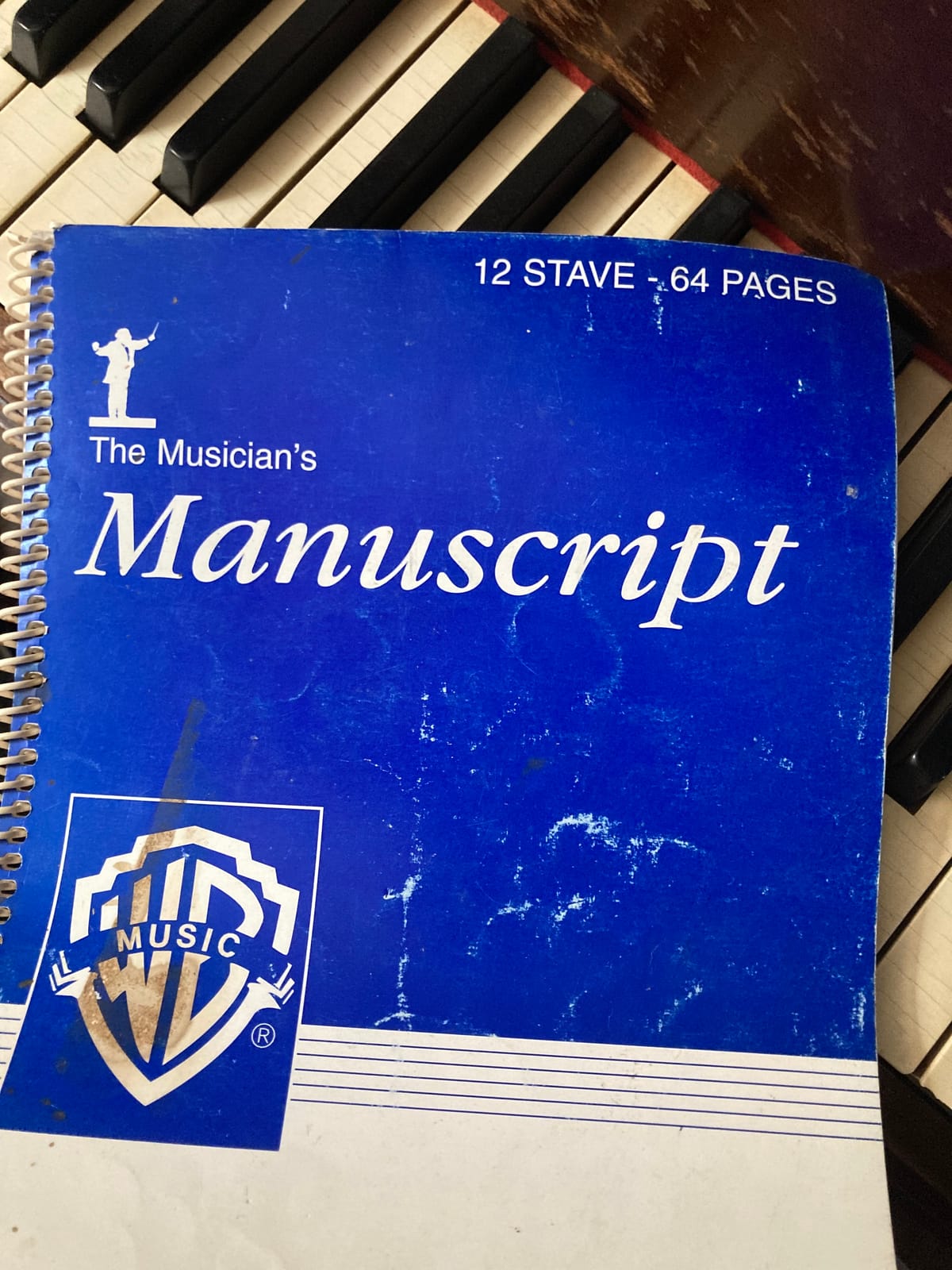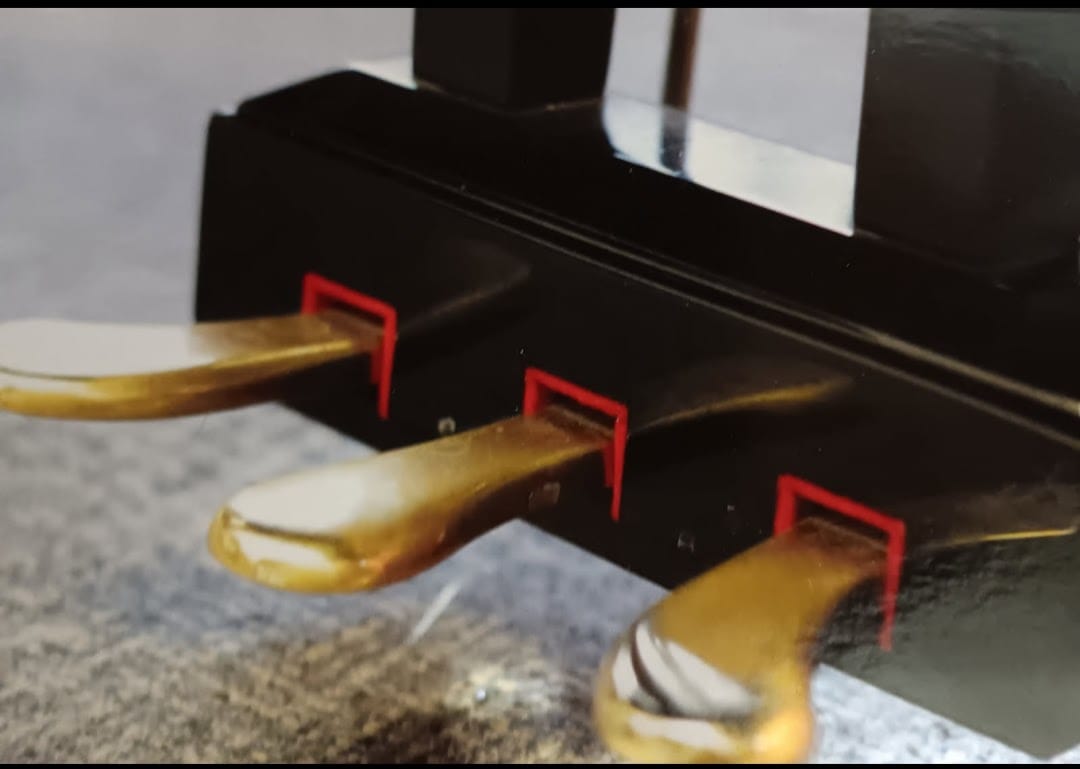Artificial Intelligence in Music

Teachers, how do we feel about this?
I'm coming at this from a different direction--I am a mathematician who understands the basics of artificial intelligence and large language models like ChatGPT and their limitations as well as their benefits--and I'm a composer.
This is a professional development workshop called Intro to Digital Literacy and Artificial Intelligence. It is offered to you as a PDF for free--the final version with audio, the test questions and answers, and advice for teachers will be uploaded to Teachers Pay Teachers for $20 over the weekend.
Both versions will bring you up to speed on what this is all about.
Ok, so what of artificial intelligence in music?
Personally, I'm not sure.
Artificial intelligence provides consistent, reliable sounds every single time. All notes are in tune, all tones blend, and you have infinite flexibility. You can create anything you want.
So what's the problem?
Well, I enjoy the wrestling of "Does this chord work here?" or "That doesn't rhyme; let's try this combination". This is creativity to me.
But how we express our creativity changes over time and with the advancement of technology. Very few people use staff paper to compose, for example, because we have computer software that helps us.
Perhaps that is the issue--regardless of the tool I use to create, I am the source of the inspiration. The ideas are born from inside of me, influenced by my environment, history, fears and dreams, experiences, and upbringing.
With artificial intelligence, the idea is given to the machine--perhaps with very well identified prompts--but it's the machine, the algorithm, the software that creates the end result, not the person.
In addition, the algorithm is using data that was given to it, culled from publically available sources from the internet--and we know that the internet and its programming is fraught with biases, inaccuracies, and plain ole awfulness. In addition, we do not get a solid global perspective consistently with such tech--remember, all of this has to be programmed by people. 67% of programmers are white, 87% of programmers are male, and English is the main spoken language of programmers.
So if you can put in a bunch of prompts and pop out a book or a symphony or an R&B album, then what is all this music theory or grammar studies or vocalese for?
This, I can answer:
Most people can tell the difference between good writing and bad, great orchestration and flat expression, soul from the heart versus notes thrown together.
In addition, in concert, I know how work to around wrong notes, missed codas and so on. I'm trained on how to do it, and experience has helped me hone those skills. How does that suss out when performing this music live? Is this a lip sync situation, or...?
Or maybe this form of art is not intended to be performed live. I can dig that, but it doesn't appear that there is any sort of plan other than let's produce some fake music and make some real money as fast as we can before people catch on.
But then how is the money made? You have to exchange the product for the cash. If folks are not happy about how the product is made (AI), then they're not giving up the cash. If they are happy with how the product is made, why would they give a machine-generated sound some cash when they can reverse engineer the sound and keep it for themselves?
And who is the artist, at this point? Copyright law tells us that you can't copyright an idea; you can copyright the expression of the idea.
This is very important:
The song Carol of the Bells is a fairly recognizable holiday song. Four sets of musicians can create variations of this song, and each one will have their own unique interpretation, thus creating four new works of art based on the idea of Carol of the Bells. The composer of the song would always be Mykola Leontovych , but Karolina Protsenko and the Mormon Tabernacle Choir and Pentatonix and Henry Rollins would express this idea in their own way.
If you're giving ideas to the machine to create, then the thing it produces can be copywritten, but then who is the artist? And when you copyright music, the music is protected 50 years after the artist's death. In an AI situation, who is the estate?
The technology is relatively new, and we are discovering in real time the ramifications of how we are using it. It's a Wild West situation right now, and time will reveal how humans took advantage of this moment.
Meanwhile, I'll be over here with my staff paper and pencil writing my next sonata.
Lessons@ThePianoInstructor.net 313.687.4433. Hire us to do all the things. We'd love it.
P.S. Would you like to say, "You got that right" in a cash-full way? Well, now you can. Click here.
